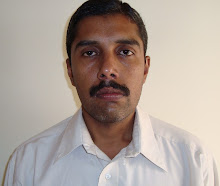To say that Bengalis
love their hilsa is an understatement. To add Tagore to the menu would be a
Godsend for them. The other day with time at my disposal, I got to understand
this Tagore worship by reading a book ‘Rabindranath Tagore-An Anthology’, which
contains a selection of his plays, poems, letters and essays. It gives an
insight into the man, his family, his work, his beliefs, and his world view in
general. Since many of his major works were written in his beloved Bengali,
translations included in this book are
primarily targeted at non Bengalis, more so a western audience to help them
understand and appreciate the man and his greatness.
His play ‘The Post office’ takes
us through the innocence and imagination of young Amal who is ill and cannot go
outdoor but yearns to explore the
reality of the world through the eyes of different people who pass by his
window..
Further we are given a dose of
some of his best travel writings on Russia,Japan, Indonesia, the UK, Persia etc where he discusses on what attracted him
in those lands as interesting, as positive worthy of emulation by India and some
shortcomings. Short pieces and easily digestible, they are a treat to read as
they show his itch for travel and assimilation of the best from far off..
By now one has got a real feel of
the depth of Tagore’s writing, and we are now privy to Tagore’s letters to his
wife, niece, well known people like WB Yeats, Bertrand Russell, Ezra Pound,
Lord Chelmsford, Romain Rolland, CF Andrews, our own Gandhi & Nehru etc.
These letters show Tagore as a universal man rooted in India, having definite
and farsighted views on all major events influencing mankind.
His views on the past and present
are brought out in his Essays, with a dialogue on music and the nature of
reality with Einstein. Towards the end, a collection of his short stories and a novel
later, one is reminded of the fact that Tagore was a great poet
before all his other vocations, through
some of his poems. After all, we know
even without this book that he got the Nobel Prize for his work of poetry
called the Gitanjali.


No comments:
Post a Comment